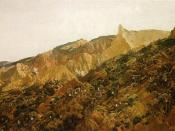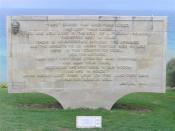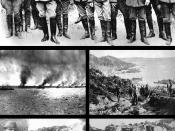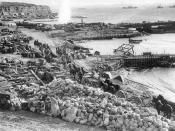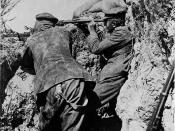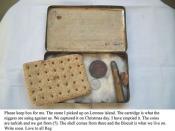ÃÂIt is a legend not of sweeping military victories so much as triumphs against the odds, of courage and ingenuity in adversity.ÃÂPaul Keating, 1993The landing at Gallipoli was seen as a story of courage and endurance amongst death and despair, in the face of poor leadership from London, and unsuccessful strategies. War correspondents, such as Charles Bean, hailed the Australians for their dash in attack and doggedness in defence and the ANZAC legend was born.
It is a legend not of sweeping military victories so much as triumphs against the odds, of courage and ingenuity in adversity.
It is a legend of free and independent spirits whose discipline derived less from military formalities and customs than from the bonds of mateship and the demands of necessity.
Australians are particularly inclined to make heroes of noble failures, such as the defeated Eureka rebels, the suicidal 'jolly swagman' in Waltzing Matilda, and Ned Kelly and Gallipoli seems to fit this pattern.
The Gallipoli campaign was the beginning of true Australian nationhood, with when Australia went to war in 1914, many white Australians believing that their Commonwealth had no history, that it was not yet a true nation, that its most glorious days still lay ahead of it.
In this sense the Gallipoli campaign was a defining moment for Australia as a new nation, but also a key moment in the evolution of a particular image of Australian masculinity.
The major features of an ANZAC legend were discernible very early in the campaign, with Australians bold and ferocious in battle but unwilling to bow to military discipline.
An ANZAC never flinched, if he died it was with a joke, or a wry smile on his face - yet nor would he salute a superior officer.
In the ANZAC legend, the Australian Imperial Force was a democratic organisation, in which there were friendly relations between officers and men, and anyone could rise from the ranks to a commission.
At Gallipoli, men from all backgrounds and classes from the newly federated Australia created the essence of what it means to be Australian - courage under fire, grace under pressure, giving a hand to a mate.
"The Australian Home Front during World War 1." ANZAC Day Commemoration Committee (Queensland). 22 May 2008 .
